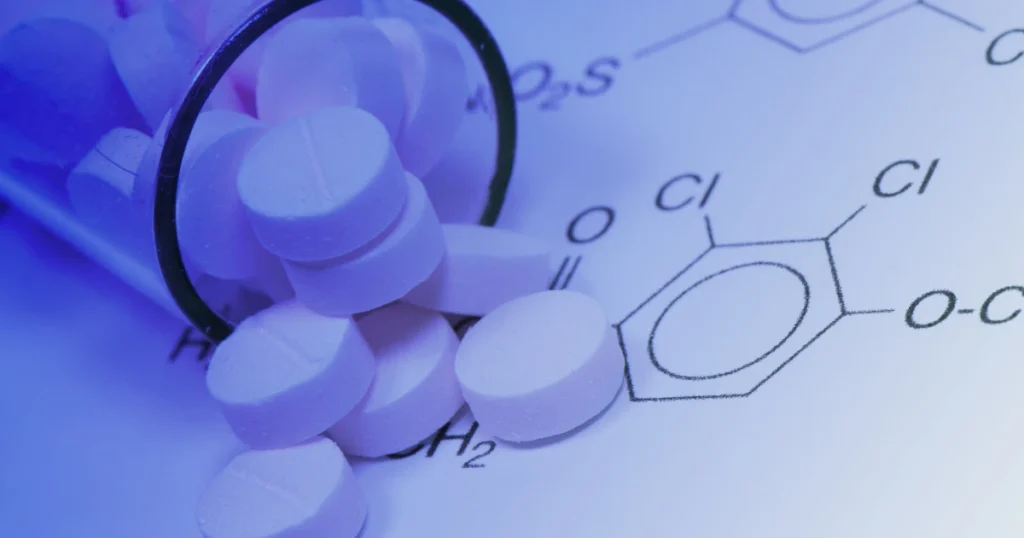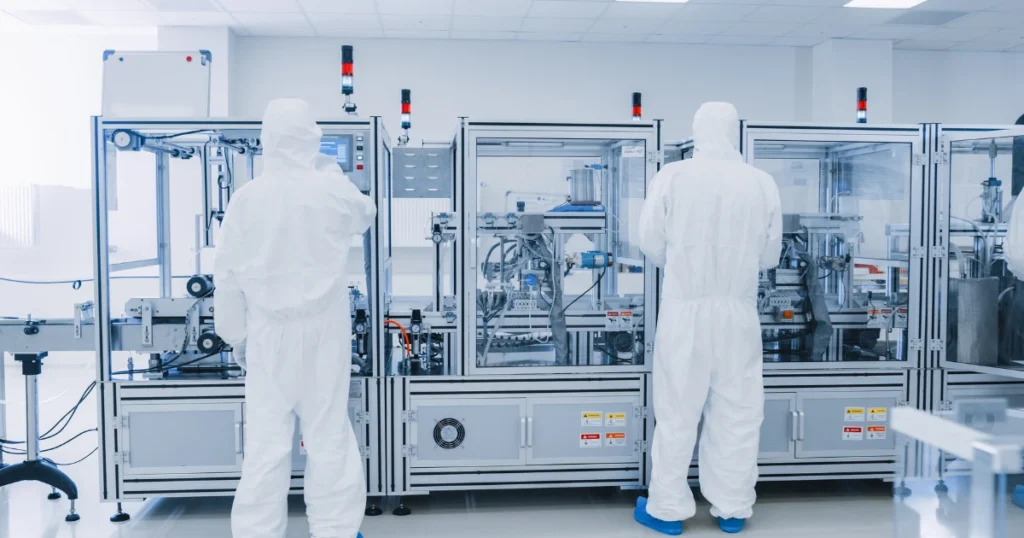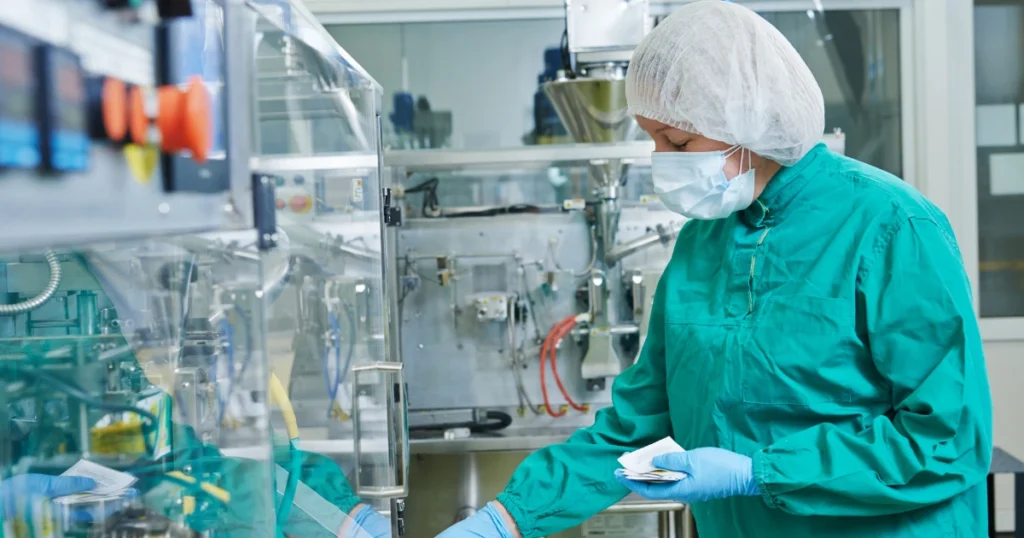GMP in Pharmaceutical Industry: If you have ever wondered why medicines in India and across the world are safe, effective, and of the same quality every time you take them, the answer lies in GMP in pharmaceutical industry. GMP, or Good Manufacturing Practices, is not just another set of technical rules, it is the backbone of drug safety.
In simple words, GMP in pharmaceutical industry makes sure that medicines are consistently produced and controlled according to quality standards. From raw materials to packaging and labelling, nothing escapes its scope.
But how did these practices start? Why do they matter? And what is the difference between GMP and cGMP? Let’s walk through the answers step by step.
As the World Health Organization (WHO) rightly says: “Quality cannot be tested into products; it has to be built into them.”
GMP Definition in Pharmaceutical Industry
So, what exactly is the GMP definition in pharmaceutical industry?
Good Manufacturing Practices are a set of regulations, codes, and guidelines for the manufacture of drugs, medical devices, and food products. Specifically, in pharma, it refers to the system that ensures products are manufactured in a safe environment, with the right processes, documentation, and trained personnel.
In the Indian context, good manufacturing practices in pharmaceutical industry are aligned with the Schedule M of the Drugs and Cosmetics Act. These guidelines are harmonised with WHO-GMP standards to ensure India’s pharmaceutical exports meet global requirements.
Think of GMP as a quality assurance umbrella, it covers every detail of how a medicine is made. Without it, quality would be left to chance, which is unthinkable in healthcare.

History of GMP in Pharmaceutical Industry
The history of GMP in pharmaceutical industry goes back to the early 20th century. Scandals involving unsafe drugs in the United States and Europe created public demand for stronger laws.
The thalidomide tragedy in the late 1950s, where thousands of babies were born with birth defects due to a poorly tested drug, shook the world. This became the turning point for formalising good manufacturing practices in pharmaceutical industry.
In India, GMP rules were introduced in the 1980s under Schedule M, and gradually, the standards were updated to align with WHO guidelines. Today, with India being one of the largest suppliers of generic medicines globally, compliance with GMP is not just a regulatory requirement, it is a global business necessity.
Read More: Sterilization Methods in Microbiology: Practical Guide for Labs & Students
Why GMP is Important in Pharmaceutical Industry?
Now, let’s answer the big question: why GMP is important in pharmaceutical industry?
- It protects patients from unsafe and ineffective medicines.
- It helps Indian manufacturers meet export requirements, especially in regulated markets like the US, EU, and Japan.
- It prevents costly recalls, reputational damage, and legal troubles.
- It boosts trust among doctors, patients, and regulators.
In short, GMP in pharmaceutical industry ensures medicines are not just effective but also reliable, batch after batch.

GMP Rules in Pharmaceutical Industry
The GMP rules in pharmaceutical industry cover a wide range of areas. They are not optional checklists but mandatory requirements. Here’s a breakdown for your better understanding:
- Documentation: Every step must be recorded. If it’s not written, it didn’t happen.
- Validation: Processes, equipment, and methods must be proven to work consistently.
- Sanitation and Hygiene: Clean facilities and sterile conditions are non-negotiable.
- Equipment Maintenance: Machines must be calibrated and serviced regularly.
- Training of Personnel: Workers must be skilled, trained, and updated with current practices.
- Quality Control: Each batch is tested before release.
- Complaints and Recalls: Systems must be in place to handle defective products.
- Self-inspection and Audits: Regular reviews to detect gaps before regulators do.
- Data Integrity: No falsification, no shortcuts. Records must be transparent and accurate.
- Change Control: Any modification in process or facility must be documented and approved.
By following these GMP rules in pharmaceutical industry, companies create a culture of accountability and quality.
10 Principles of GMP in Pharmaceutical Industry
The 10 principles of GMP in pharmaceutical industry are like the golden commandments for pharma manufacturers. Let’s break them down with some examples:
- Write step-by-step procedures: Clarity avoids confusion on the shop floor.
- Follow written procedures: A manual is useless if ignored.
- Document work: Evidence is as important as action.
- Validate work: Don’t assume; prove that processes work.
- Design facilities and equipment properly: A cleanroom must stay clean by design.
- Maintain facilities and equipment: Regular checks prevent breakdowns.
- Train personnel: Untrained staff are a risk to quality.
- Protect products against contamination: Use gloves, masks, and sterile processes.
- Control components and product quality: Test everything that goes into a medicine.
- Conduct audits: Continuous improvement keeps quality alive.
These 10 principles of gmp in pharmaceutical industry form the heart of compliance. Skipping even one weakens the whole system.
Difference Between GMP and cGMP in Pharmaceutical Industry
Now comes an important distinction: the difference between gmp and cgmp in pharmaceutical industry.
- GMP refers to the baseline Good Manufacturing Practices.
- cGMP stands for Current Good Manufacturing Practices.
The word “current” is the key. It means companies must keep up with the latest technologies, systems, and scientific understanding. For example, using digital batch records instead of manual ones is part of cGMP.
For Indian manufacturers, following cGMP is crucial because the US FDA and EMA expect it. If a factory only meets old GMP standards, it may not be allowed to export to regulated markets.
So, the difference between GMP and cGMP in pharmaceutical industry is not just about a letter, it’s about staying relevant and competitive globally.

Challenges of Implementing GMP in India
While the theory of GMP in pharmaceutical industry looks neat, practice in India often faces hurdles:
- Small-scale manufacturers may find compliance costly.
- Lack of trained manpower in rural facilities.
- Upgrading infrastructure to cGMP standards takes time.
- Frequent regulatory updates can be difficult to follow.
Yet, with India’s reputation as the “pharmacy of the world,” ignoring GMP is not an option.
On A Final Note…
The journey of GMP in pharmaceutical industry is a story of protecting lives through discipline, science, and constant improvement.
For Indian manufacturers, compliance is not just about ticking boxes. It is about securing global reputation and patient safety. Understanding the difference between GMP and cGMP in pharmaceutical industry also makes it clear, staying updated is the only way forward.
So next time you take a tablet or an injection, remember: it is not luck that makes it safe. It is good manufacturing practices in pharmaceutical industry, quietly working behind the scenes, every single day.
FAQs on GMP in Pharmaceutical Industry
Q1. What is the gmp definition in pharmaceutical industry in simple words?
It means rules to make sure medicines are safe, effective, and of the same quality every time.
Q2. What is the history of gmp in pharmaceutical industry in India?
India adopted GMP under Schedule M in the 1980s, later aligned with WHO standards to meet global export needs.
Q3. Why GMP is important in pharmaceutical industry today?
Because it builds trust, prevents unsafe medicines, and supports global exports.
Q4. What are some key gmp rules in pharmaceutical industry?
Documentation, validation, hygiene, training, quality control, recalls, audits, and data integrity.
Q5. What is the difference between gmp and cgmp in pharmaceutical industry?
GMP is the baseline; cGMP includes the latest updates and technologies to ensure quality.

